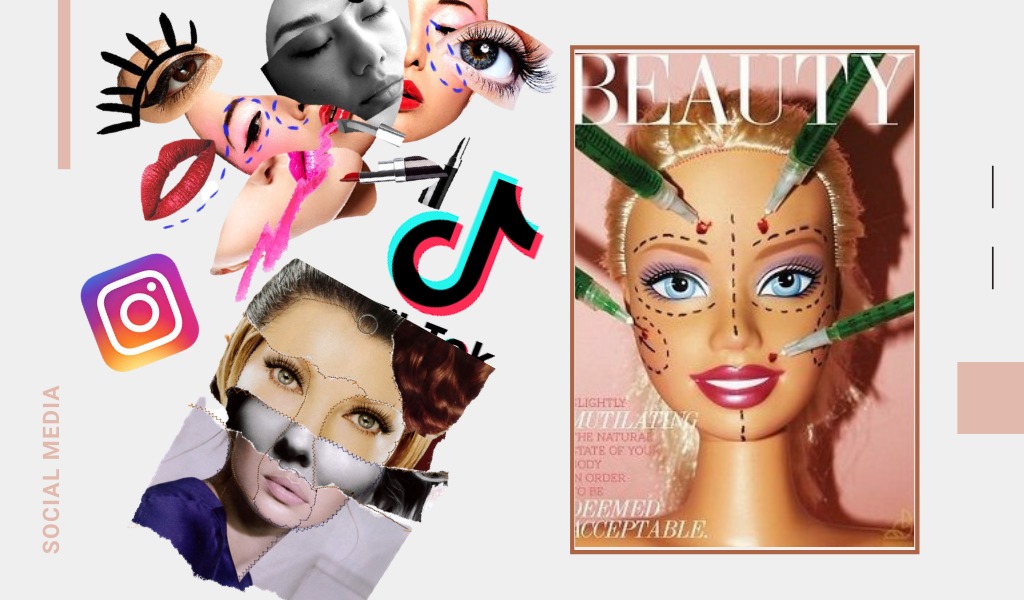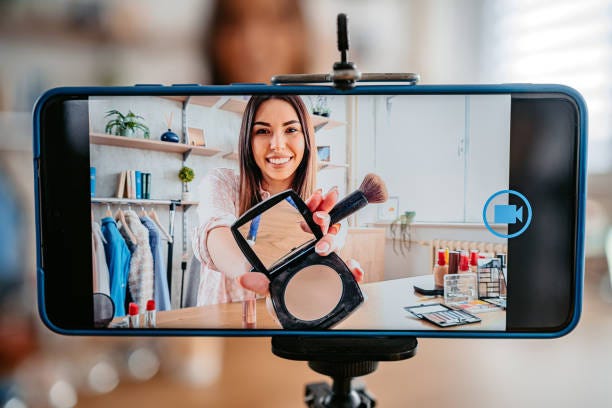The Impact Of Social Media On Beauty Standards: A Critical Examination Of The "Makeup Should Be Illegal" TikTok Trend
The Impact of Social Media on Beauty Standards: A Critical Examination of the "Makeup Should Be Illegal" TikTok Trend
Related Articles: The Impact of Social Media on Beauty Standards: A Critical Examination of the "Makeup Should Be Illegal" TikTok Trend
Introduction
In this auspicious occasion, we are delighted to delve into the intriguing topic related to The Impact of Social Media on Beauty Standards: A Critical Examination of the "Makeup Should Be Illegal" TikTok Trend. Let’s weave interesting information and offer fresh perspectives to the readers.
Table of Content
The Impact of Social Media on Beauty Standards: A Critical Examination of the "Makeup Should Be Illegal" TikTok Trend

The digital age has ushered in a new era of social interaction, where platforms like TikTok have become powerful forces in shaping cultural trends, including those related to beauty and self-expression. One such trend, which has sparked significant debate, is the "makeup should be illegal" movement. While the phrase itself is a provocative statement, it serves as a catalyst for exploring the complex relationship between social media, beauty standards, and individual identity.
This article delves into the motivations behind this trend, analyzing its implications for the beauty industry, individual self-perception, and the broader social landscape. It examines the potential benefits and drawbacks of the movement, ultimately aiming to provide a nuanced understanding of its impact on contemporary society.
The Rise of the "Makeup Should Be Illegal" Trend:
The "makeup should be illegal" trend emerged as a response to the pervasive influence of social media on beauty standards. TikTok, with its highly curated content and emphasis on visual aesthetics, often presents a distorted reality, showcasing heavily filtered and edited images that create unrealistic expectations for beauty. This idealized representation can lead to feelings of inadequacy and pressure to conform to these unattainable standards.
Furthermore, the trend’s emergence can be attributed to the increasing awareness of the detrimental effects of social media on mental health. Studies have shown a correlation between excessive social media use and body image issues, anxiety, and depression. Young people, particularly those navigating adolescence and early adulthood, are particularly vulnerable to these negative influences.
Exploring the Arguments for and Against the Trend:
The "makeup should be illegal" trend, while seemingly hyperbolic, reflects a legitimate concern regarding the pressure to conform to unrealistic beauty standards. Proponents of the movement argue that by banning makeup, society can eliminate the pressure to achieve a certain appearance and encourage individuals to embrace their natural beauty. They believe this will foster a more inclusive and accepting environment, where individuals are valued for their unique qualities rather than their adherence to external beauty ideals.
However, the movement also faces criticism. Critics argue that banning makeup would be an infringement on personal freedom and self-expression. They believe that makeup is a form of art and a tool for creativity, allowing individuals to experiment with their appearance and express their individuality. They argue that the focus should be on promoting healthy self-esteem and body positivity, rather than restricting access to makeup.
The Impact on the Beauty Industry and Consumer Behavior:
The "makeup should be illegal" trend has undoubtedly had an impact on the beauty industry. While some brands may see a decline in sales, others are adapting to the changing consumer landscape by promoting more inclusive and natural-looking beauty standards. This shift towards authenticity and self-acceptance is evident in the increasing popularity of "no makeup" makeup looks and the rise of brands that prioritize skin health and natural beauty.
Furthermore, the trend has influenced consumer behavior, leading to a greater awareness of the potential downsides of excessive makeup use and the importance of embracing natural beauty. Consumers are increasingly seeking products that are gentle on the skin and promote a healthy glow, rather than those that focus solely on covering imperfections.
The Broader Social Implications:
The "makeup should be illegal" trend reflects a larger societal shift towards greater acceptance and inclusivity. It highlights the importance of challenging unrealistic beauty standards and promoting self-love and self-acceptance. The movement encourages individuals to question the messages they receive through social media and to prioritize their own well-being and self-expression.
However, it is crucial to acknowledge that the trend itself is not a solution to the problem of unrealistic beauty standards. While it can serve as a catalyst for discussion and awareness, it is ultimately up to individuals to critically evaluate the messages they receive and to develop a healthy relationship with their own appearance.
FAQs Regarding the "Makeup Should Be Illegal" Trend:
Q: Is the "makeup should be illegal" trend actually advocating for a ban on makeup?
A: The trend’s provocative name is intended to spark conversation and highlight the problematic nature of unrealistic beauty standards. It does not literally advocate for a ban on makeup.
Q: How can individuals navigate the pressure to conform to unrealistic beauty standards on social media?
A: Individuals can combat these pressures by:
- Being mindful of the content they consume: Pay attention to the filters and editing used in social media posts and be aware of the potential for unrealistic expectations.
- Following diverse accounts: Seek out accounts that promote body positivity, self-acceptance, and diverse beauty standards.
- Focusing on their own unique beauty: Embrace their individuality and celebrate their own strengths and features.
Q: What are some alternative approaches to addressing the issue of unrealistic beauty standards?
A:
- Promoting media literacy: Educating individuals on the techniques used to create idealized images and fostering critical thinking skills.
- Supporting body positivity initiatives: Empowering individuals to embrace their bodies and challenge societal norms.
- Encouraging self-compassion: Fostering a positive self-image and promoting self-acceptance.
Tips for Navigating the "Makeup Should Be Illegal" Trend:
- Engage in constructive dialogue: Approach the topic with an open mind and engage in respectful discussions with others who hold different perspectives.
- Promote healthy self-esteem: Encourage individuals to focus on their inner qualities and to value themselves for who they are.
- Advocate for diversity and inclusivity: Support initiatives that promote a wider range of beauty standards and celebrate diversity in appearance.
Conclusion:
The "makeup should be illegal" trend, while controversial, reflects a growing awareness of the impact of social media on beauty standards and individual self-perception. It serves as a reminder of the need to challenge unrealistic expectations and to promote a culture of acceptance and self-love. While banning makeup is not a practical solution, the trend encourages individuals to be critical consumers of media, to embrace their own unique beauty, and to advocate for a more inclusive and equitable society.
Ultimately, the true value of the "makeup should be illegal" trend lies in its ability to spark conversations about beauty, self-expression, and the role of social media in shaping our perceptions of ourselves and others. By engaging in these conversations, we can work towards creating a world where beauty is celebrated in all its diverse forms.








Closure
Thus, we hope this article has provided valuable insights into The Impact of Social Media on Beauty Standards: A Critical Examination of the "Makeup Should Be Illegal" TikTok Trend. We appreciate your attention to our article. See you in our next article!